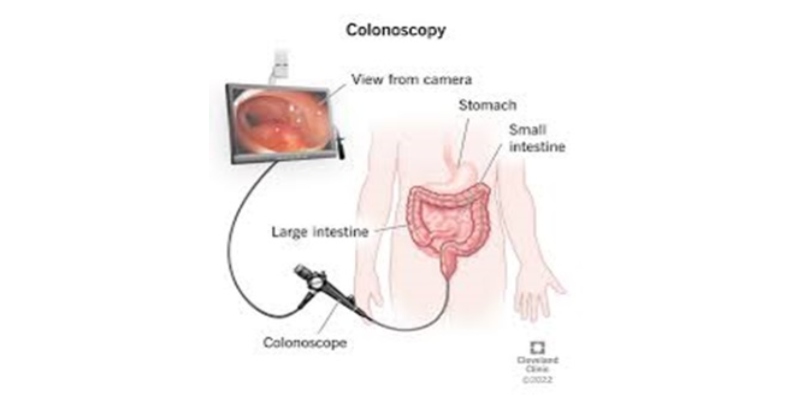Colorectal cancer is a formidable adversary, but early detection and prevention are powerful weapons in the fight against it. One crucial tool in this battle is the colonoscopy, a medical procedure that plays a key role in reducing the risk of colorectal cancer.
Understanding Colonoscopy
A colonoscopy is a medical examination that allows healthcare professionals to thoroughly examine the inner lining of the colon and rectum using a flexible tube with a camera. This procedure aids in the early detection of abnormalities such as polyps, which may be precursors to colorectal cancer. During the procedure, if polyps are identified, they can often be emoved, preventing the development of cancer.
Key Benefits of Colonoscopy:
Early Detection of Abnormalities:
Colonoscopy is an effective means of detecting precancerous polyps or colorectal cancer in its early stages when treatment is most successful. Regular screenings can help catch potential issues before they escalate.
Preventive Removal of Polyps:
Not only does colonoscopy identify abnormalities, but it also allows for the removal of polyps during the same procedure. This preventive measure significantly reduces the risk of these polyps developing into cancer over time.
Screening for High-Risk Individuals:
For individuals with a family history of colorectal cancer or other risk factors, regular colonoscopies may be recommended at an earlier age. This targeted screening approach can be instrumental in identifying and managing risks proactively.
Colorectal cancer is a formidable adversary, but early detection and prevention are powerful weapons in the fight against it. One crucial tool in this battle is the colonoscopy, a medical procedure that plays a key role in reducing the risk of colorectal cancer.
Understanding Colonoscopy
A colonoscopy is a medical examination that allows healthcare professionals to thoroughly examine the inner lining of the colon and rectum using a flexible tube with a camera. This procedure aids in the early detection of abnormalities such as polyps, which may be precursors to colorectal cancer. During the procedure, if polyps are identified, they can often be removed, preventing the development of cancer.
Key Benefits of Colonoscopy:
Early Detection of Abnormalities:
Colonoscopy is an effective means of detecting precancerous polyps or colorectal cancer in its early stages when treatment is most successful. Regular screenings can help catch potential issues before they escalate.
Preventive Removal of Polyps:
Not only does colonoscopy identify abnormalities, but it also allows for the removal of polyps during the same procedure. This preventive measure significantly reduces the risk of these polyps developing into cancer over time.
Screening for High-Risk Individuals:
For individuals with a family history of colorectal cancer or other risk factors, regular colonoscopies may be recommended at an earlier age. This targeted screening approach can be instrumental in identifying and managing risks proactively.
Comprehensive Evaluation: Unlike some other screening methods, colonoscopy provides a thorough examination of the entire colon, offering a comprehensive assessment of colorectal health.
Reducing the Risk of Colorectal Cancer:Regular Screenings:
Following the recommended screening guidelines for colonoscopies can aid in the early detection and prevention of colorectal cancer. Discuss with your healthcare provider when you should begin screenings based on your individual risk factors.
Healthy Lifestyle Choices:
While colonoscopy is a powerful tool, adopting a healthy lifestyle is equally important. Maintaining a balanced diet, engaging in regular physical activity, and avoiding tobacco and excessive alcohol
consumption contribute to overall colorectal health.
Awareness and Education:
Being informed about colorectal cancer risks and the importance of screenings empowers individuals to take charge of their health. Regular conversations with healthcare professionals can provide personalized guidance.
In the realm of colorectal cancer prevention, colonoscopy stands out as a proactive and effective measure. By undergoing regular screenings and making positive lifestyle choices, individuals can significantly reduce their risk of colorectal cancer and contribute to a healthier future. Early detection, coupled with prevention, is our strongest defence in the battle against this disease.
Unlike some other screening methods, colonoscopy provides a thorough examination of the entire
colon, offering a comprehensive assessment of colorectal health.
Reducing the Risk of Colorectal Cancer:
Regular Screenings:
Following the recommended screening guidelines for colonoscopies can aid in the early detection and prevention of colorectal cancer. Discuss with your healthcare provider when you should begin screenings based on your individual risk factors.
Healthy Lifestyle Choices:
While colonoscopy is a powerful tool, adopting a healthy lifestyle is equally important. Maintaining a balanced diet, engaging in regular physical activity, and avoiding tobacco and excessive alcohol consumption contribute to overall colorectal health.
Awareness and Education:
Being informed about colorectal cancer risks and the importance of screenings empowers individuals to take charge of their health. Regular conversations with healthcare professionals can provide personalized guidance.
In the realm of colorectal cancer prevention, colonoscopy stands out as a proactive and effective measure. By undergoing regular screenings and making positive lifestyle choices, individuals can significantly reduce their risk of colorectal cancer and contribute to a healthier future. Early detection, coupled with prevention, is our strongest defence in the battle against this disease.

